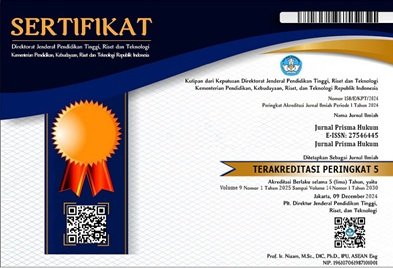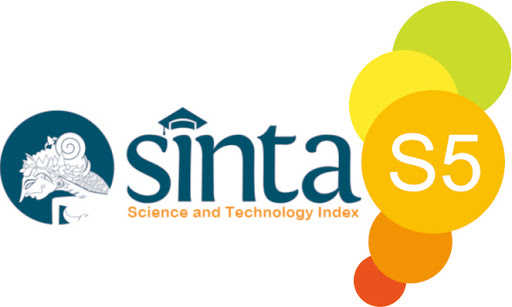BATASAN HAK IMUNITAS DEWAN PERWAKILAN RAKYAT (DPR) DALAM MENINGKATKAN FUNGSI PENGAWASAN
Kata Kunci:
Hak Imunitas, DPR, Negara HukumAbstrak
Undang-Undang Nomor 2 Tahun 2018 kaitannya dengan Perubahan Kedua atas Undang-Undang Nomor 17 Tahun 2014 kaitannya dengan MD3 mengatur hak imunitas anggota Dewan Perwakilan Rakyat (DPR) sebagai bentuk perlindungan hukum dalam menjalankan tugas konstitusionalnya. Namun, ketentuan tersebut menimbulkan kekhawatiran akan potensi penyalahgunaan kekuasaan, karena tidak seluruh tindakan anggota DPR dalam berbagai konteks dijelaskan batasannya secara eksplisit. Penelitian ini secara tujuan untuk melaksanakan analisis batasan normatif hak imunitas DPR serta implikasinya dihadapkan dengan prinsip persamaan di hadapan hukum (equality before the law).Metode penelitian yang dipergunakan yakni yuridis normatif dengan mempergunakan pendekatan perundang-undangan, konseptual, dan studi kasus. Sumber data terdirinya dari sejumlah dua bahan hukum yakni primer serta sekunder, termasuk dokumen legislatif dan putusan pengadilan. Analisis dilakukan secara kualitatif untuk mengidentifikasi titik-titik rawan penyimpangan dari hak imunitas yang dijadikan tameng dalam menghadapi proses hukum. Hasil penelitian menunjukkan bahwa meskipun hak imunitas DPR bersifat konstitusional, pembatasannya di Pasal 224 serta Pasal 245 UU MD3 belum sepenuhnya efektif menahan laju penyalahgunaan kewenangan. Dalam praktiknya, imunitas kerap dimaknai secara luas oleh sebagian anggota DPR untuk menghindari proses hukum, meskipun tindakannya berada di luar pelaksanaan tugas dan wewenang.
Law Number 2 of 2018, in conjunction with the Second Amendment to Law Number 17 of 2014 concerning the MD3, regulates the immunity rights of members of the House of Representatives (DPR) as a form of legal protection in carrying out their constitutional duties. However, this provision raises concerns about the potential for abuse of power, as not all actions of DPR members in various contexts are explicitly limited. This study aims to analyze the normative limitations of the DPR's immunity rights and their implications when faced with the principle of equality before the law. The research method used is normative juridical using a statutory, conceptual, and case study approach. Data sources consist of two legal materials, namely primary and secondary, including legislative documents and court decisions. The analysis was conducted qualitatively to identify vulnerable points of deviation from the immunity rights used as a shield in facing legal processes. The results of the study indicate that although the DPR's immunity rights are constitutional, the limitations in Articles 224 and 245 of the MD3 Law have not been fully effective in curbing the rate of abuse of authority. In practice, immunity is often interpreted broadly by some members of the DPR to avoid legal proceedings, even though their actions are outside the scope of their duties and authority.





